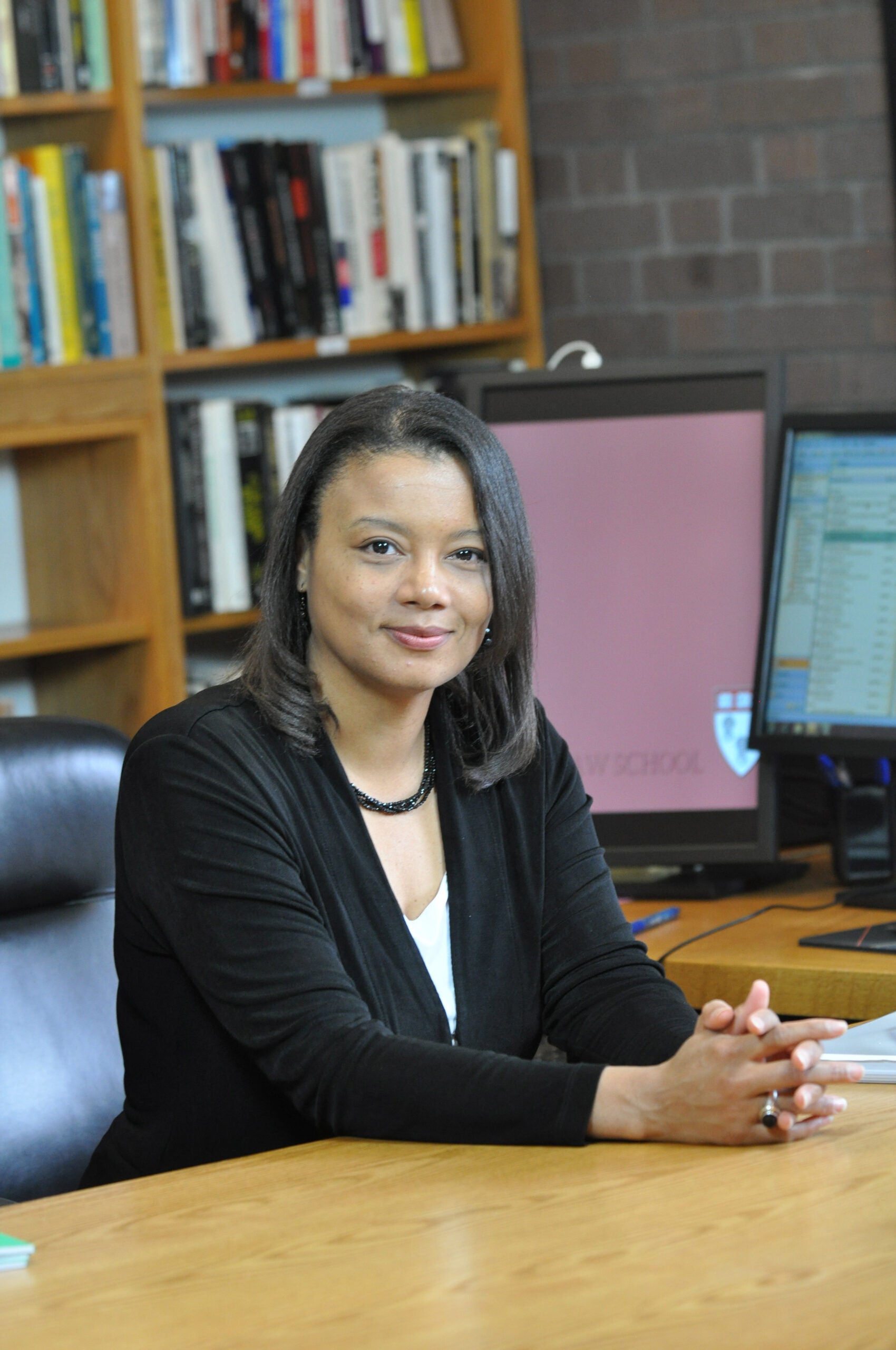This semester, Harvard Law School launched the Law and History program of study. The new program of study joins six others, including Law and Social Change, Law and Business, and Law, Science and Technology. These programs guide students in navigating HLS’ extensive course offerings and connect them with faculty whose interests they share.
The Law and History program of study is headed by two faculty leaders: Professor Tomiko Brown-Nagin, who is also a Professor of History in the Faculty of Arts and Sciences, and Professor Kenneth Mack.
In this Q&A, Brown-Nagin discusses the origins and goals of the new program of study as well as her own scholarship.
What does the Law and History program of study aim to do?
The goal of the program is to make students aware that there are a number of world class legal historians on the faculty at Harvard Law School who have a lot to offer to students who are interested in history casually, but also to students who might be considering a career in academia. We’re also building community. As of next year, we will be including students in the legal history colloquium, which will be a class where students can meet professors who are coming to present their work. I think there’s a fabulous opportunity for students to network with people who are successful in their profession.
One of the things I want to be absolutely clear to students – something that wasn’t actually crystal clear to me when I first started trying to combine my interest in social history and law—is that the two are completely compatible. It should not be considered odd or strange to study legal history in the context of law school. If anything, I think studying the context in which the law develops makes it clearer how doctrine evolves over time, what goes into the making of doctrine, that it’s not just the law alone – it’s the identity of a lawmaker, it is the social context, it can be the identity of the plaintiffs and defendants, it can be geopolitical considerations, it could be what’s happening in politics. I want students to be comfortable and interested and excited about studying legal history.
In addition to the workshop and academic offerings, are there other components to the program?
Next year, we hope to help build community among students by hosting lunches or coffees periodically. There are students in our law school community who are pursuing Ph.Ds on the Yard and we definitely want to give those students a home and a place to hear from others who are doing the same kinds of things. We want to provide a space that can make the Harvard experience more manageable and smaller in scale.
How do you see the program expanding?
Going forward, I hope the website will be more interactive so that students can use it to find out when talks are going on, not only here but on campus or in the surrounding area, that they might be interested in. We may add courses that are geared towards methodology. I also want to make sure that the legal history workshop includes students from across campus; so it will be jointly offered with the Graduate School of Arts and Sciences.
And frankly I’m counting on students to tell me what their needs are so we can expand in ways that are student-driven. It strikes me that the best way to get buy-in for a program is to actually talk to the people whom you’re trying to reach.
What kind of student involvement have you seen so far?
It’s very new endeavor. However, I’ve been pleased with the turnout among students for our workshop this year. I hope it’ll only grow.
How is the Law and History program different from and similar to the other programs of study?
We all are trying to appeal to students who have an interest in our subjects. The biggest difference, though, is that unlike Law and Business or even Law and Social Change – both of which are geared towards students who have professional interest in the underling subjects – Law and History is broader and open to students across the spectrum [with different levels of interest].
In the Law and History workshop for next year, for example, students have the opportunity to meet scholars, read their papers and read foundational works in legal history, like any class. But if students want to commit more deeply to the subject, they can do so. Students who are interested in writing a paper or that’s related to history can do so. The program really does aspire to attract both of those student types.
How did the Law and History program originate, and how did your own experiences bring you to helping start it?
It launched in part because of a felt need on the part of me and Ken [Mack] and the dean. We needed an institutional space to showcase the faculty and to make connections among folks on campus who are interested in history.
[The program] also grew out of my own experiences and frustrations as a law student interested in doing something that at the time was unconventional: talking not only about law and legal history in a top-down manner, but from a bottom-up perspective. I didn’t know how to do it within the confines of law school. When you’re doing something that’s different or new, there’s always the response of, “Well, that isn’t really legal history, that’s not constitutional history.”
For students in the law and history program, I want to be accessible to them and I want to help them not experience the barriers that I did when I was trying to make my way. I view mentoring students as very important, and I see the law and history program as a way to mentor for all of us.
